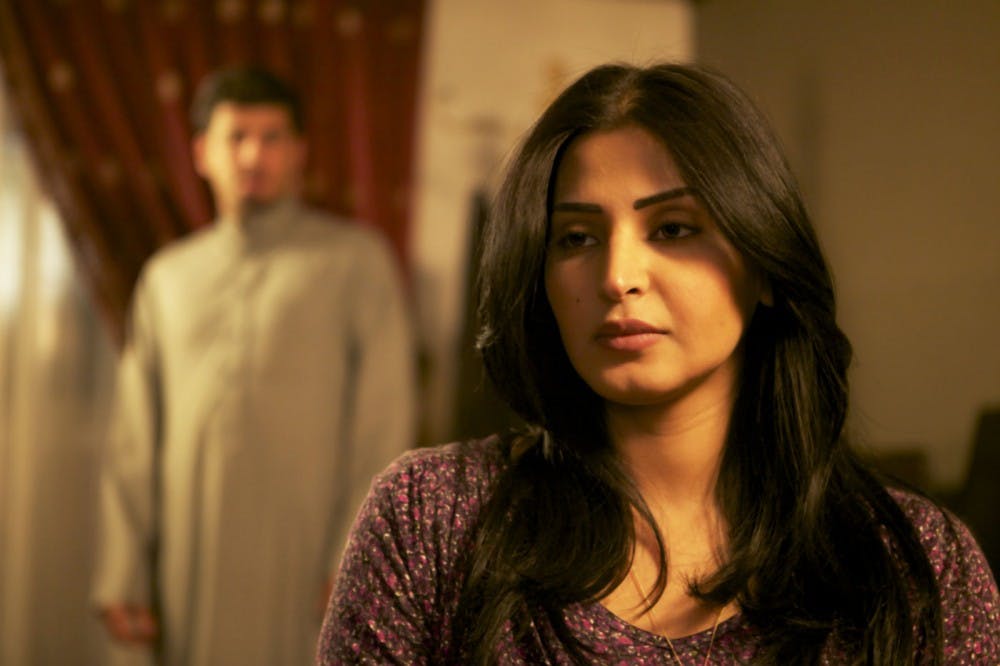5/5 Stars
Al-Masour becomes first female director for nation
“Wadjda” is the first feature film shot entirely in Saudi Arabia and is the first feature-length film made by a female Saudi director. Haifaa Al-Mansour wrote and directed her narrative film debut with beautiful simplicity and realism.
Wadjda (Waad Mohammed) is an 10-year old Saudi girl who lives with her mother (Reem Abdullah). Her father is loving but rarely comes home because he is considering taking a second wife. Wadjda has a habit of getting in trouble at school and breaking rules. She frequently finds herself in the office of the headmistresses, Ms. Hussa (Ahd), who is strict but realistic. She is teaching the young females about what is expected of them in the deeply repressive society. All the women must cover their head when they are out in public, and they cannot drive.
One day Wadjda sees a bicycle which seems to be floating in the air (it is tied atop a van), and she instantly wants to buy it. She makes money at school by selling bracelets and cassette mixtapes, but she has to raise more money in order to buy the bicycle of her dreams. When her school offers a Koran-reciting contest with a cash prize, she becomes determined to win the competition even though she has never been very successful at recitation.
Although the country in which the film is set treats women horribly, the film is uplifting and life-affirming. The women are not equal, but they are portrayed as strong-willed and independent when men are not around. Wadjda is a cunning young girl who quietly rebels against her surroundings. She does not even seem to grasp why she is doing anything wrong. Her mother tells her that women are not supposed to ride bicycles, but she wants one because her male friend Abdullah (Abdullrahman Al Gohani) does. The treatment of women in the country is decidedly different from the United States, but life is similar in many ways. The father plays video games on a widescreen television, one male character had braces, and there is a sleek, modern shopping mall that Wadjda and her mother visit. The country’s sexist politics might be stuck in the Middle Ages, but the people’s lifestyles are surprisingly current.
Waad Mohammed gives such an assured performance that it does not seem like she is acting. She is charming, funny and adorable but not in the cloying way that bad child actors often are.
Al-Mansour writes and directs each scene with an intimacy and emotion that makes the audience completely invested in the story and the characters. Seeing the world through Wadjda’s eyes shows a perspective of clarity and innocence. The struggles and inequality of the adult female characters are shown and their relationship with Wadjda is a key part of the story, but focusing the film on a young female shines a bright light on a culture that is stuck in the dark past.
“Wadjda” is a small miracle of a film with enormous power. Al-Mansour had to secretly film some of the scenes from a van in order not to be caught. Her determination for five years to make this film is commendable if not heroic. This film, one of the year’s very best, should be seen by everyone who is old enough to read subtitles.

